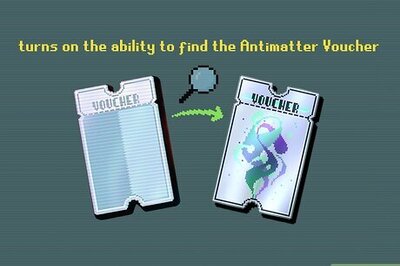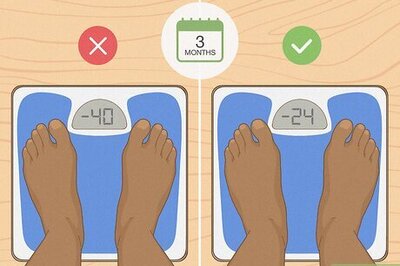
views
Acquiring and Preserving Mealworms

Purchase mealworms. You can buy mealworms in various sizes via mail order or at pet stores. For example, Petco sells mealworms in sizes ranging from ¼ inch to 1 inch. The younger your dragon, the smaller the worm should be. In fact, if in doubt, always purchase a smaller worm. Mealworms consist of over sixty percent moisture, with smaller amounts of protein, fat, carbohydrate, and ash. They can be quite small, from a centimeter to almost two inches in length. You can raise your own mealworms. See Raise Mealworms for more tips.

Keep your mealworms well-preserved. If you leave your mealworms at room temperature, they will become beetles. Your beardie should not eat these. You also may put mealworms in the refrigerator for several months, which will incite deep sleep. If you want the worms to be “active," place them in a plastic container with oatmeal flakes. Add bits of celery or apple for hydration. They will last for two weeks this way.

Do not use dead mealworms. If you are preserving your mealworms and some die, do not feed them to your beardie. Dispose of them (preferably with gloves). Mealworms are appealing and exciting to eat because they are moving prey. Wear gloves when touching and removing dead mealworms.
Feeding Mealworms to Your Beardie

Dust the mealworm with calcium. When you feed your beardie mealworms, sprinkle calcium dust on the worms. At most, give calcium twice per week. This will help your dragon get needed nutrition plus necessary calcium. Purchase calcium carbonate at drugstores. Grind the tablets into a powder. Use a sugar shaker to coat the worms.

Feed your dragon by hand. One way to bond with your bearded dragon is to feed him his food from your fingertips or from a pair of tweezers. Put part of a worm on your finger. He will use his tongue to lick it up. Be aware beardies are not aggressive, but an accidental bite could take the tip off your finger. So be careful with your fingers! Only give your dragon small amounts of food that he can eat in one day.

Place one or two worms on a bowl or plate. Place the mealworms in a bowl. Your dragon will eat from the bowl like a cat would eat. Make sure the bowl’s edges are not too high. Another option is to put the food on a plate for easy access. While this might be a bit messy, the food could be easier to reach.
Knowing When to Give Your Beardie Mealworms

Do not feed mealworms to baby beardies. Because mealworms have a rough outer skeleton, they are hard for babies to digest. In fact, if a baby eats a mealworm, he might get a dangerous intestinal blockage. Instead, feed babies smaller foods like crickets, fruit flies, and tiny wax worms. If you notice your baby is having a hard time eating a certain food (e.g. she cannot get it in her mouth), remove the food from the cage. The food might be too big for your beardie to eat. For examples, beardies can only eat insects smaller than the distance between their eyes.

Offer juvenile dragons mealworms. One or two times weekly, you can feed mealworms to a juvenile dragon as a treat. Juvenile dragons are five months to eighteen months old. Still, you should aim to offer more vegetables than insects at this stage. Feed your dragon vegetables minimally four times weekly. Use baby mealworms. When mealworms are young (hatchlings), they are easier for the beardie to eat and digest. Only offer one to two worms.

Give your adult dragon mealworms sparingly. Adults are dragons over 18 months in age. While your adult can now digest mealworms properly, he should be eating even more fruits and vegetables than when he was a juvenile. Perhaps offer mealworms once per week and rotate mealworms with other insects. Aim for a balance of one fourth insects, three fourths fresh fruits and vegetables. Adult dragons also may eat mice or small lizards but feed these foods rarely. Adult dragons are prone to be overweight. Do not overfeed them. Female dragons may receive more food when they are breeding. Remember mealworms are a treat — only offer a few to your beardie.



















Comments
0 comment